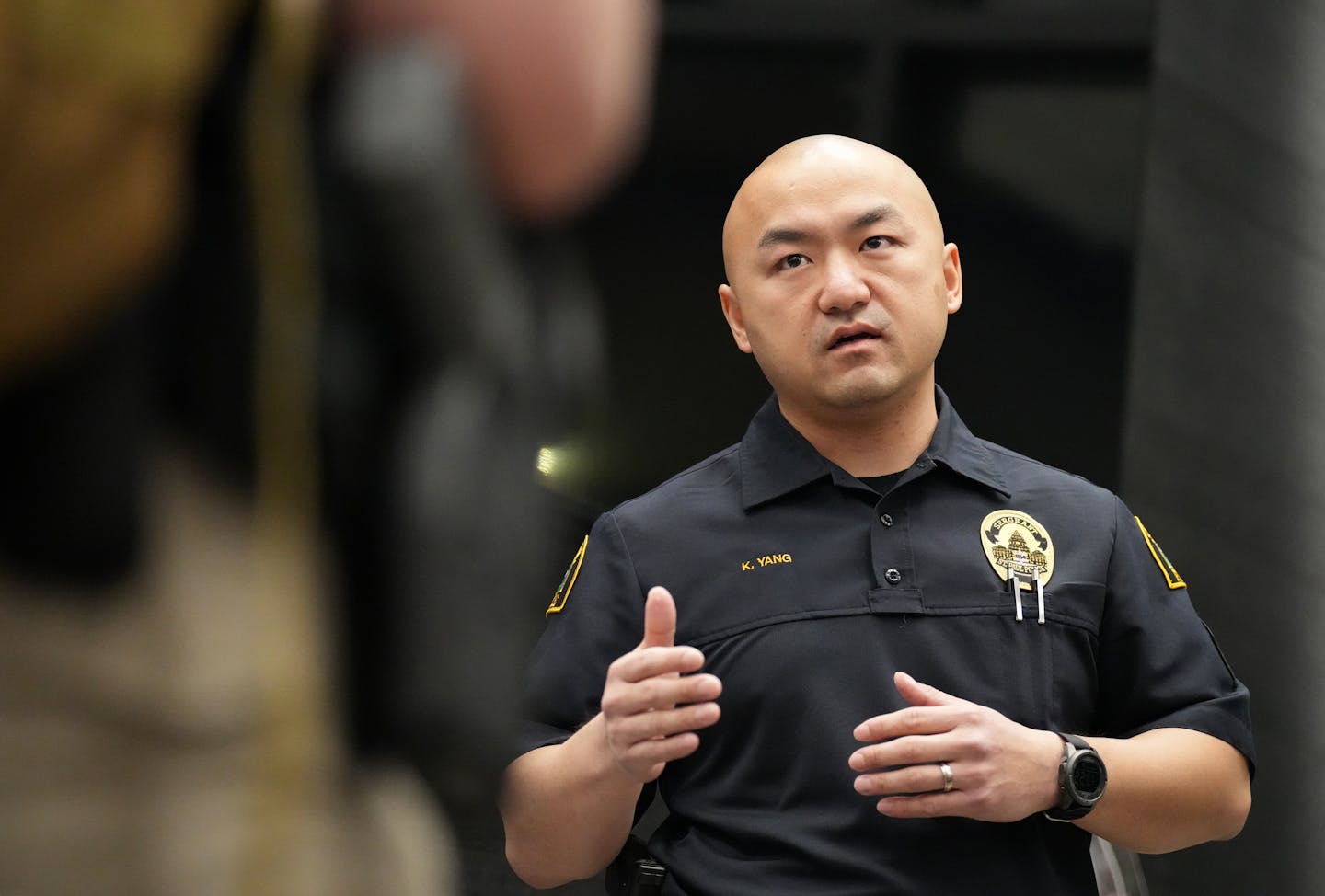Rebecca Modeen has dreamt of becoming a police officer for a long time. Getting there has not been easy.
Modeen, 28, enrolled in Rasmussen University's law enforcement program a few years ago to start her career, but the program was postponed by the pandemic. Then came Gerald, Modeen's "rough and tumbly" firstborn, requiring her to stay at home with him.
But she has since restarted the program, and is now back on track to achieve her lifelong dream. For her, the choice where to apply was obvious.
"My entire class gets sick of listening to how excited I feel about St. Paul," said Modeen, who's lived in the city for a decade. "I think that St. Paul really has the most professional officers that I've ever seen, and it seems like they portray themselves as the biggest stewards of this career field."
Modeen's next challenge is to pass an interview with the city and to enroll in the department's Law Enforcement Career Path Academy. Luckily, she and other prospective officers will have help.
St. Paul has doubled down on its efforts to recruit officers amid a national wave of police retirements and resignations. Leading those efforts is Sgt. Kou Yang, the first St. Paul police officer hired to focus on recruitment.
Yang, 36, has led many changes since starting the role in November. Those efforts were on display at the HERO Training Center, more than a dozen miles from the St. Paul Police Department, as Yang spoke to Modeen and other students.
They stood at attention as Yang answered questions about St. Paul. He told them how overtime pay works, and why officers are assigned to certain districts. Yang's goal is to help them through the recruitment process, telling them, "I don't just recruit. … I like to stay with you all the way through."
"At St. Paul we just have a mind-set where we want to see you succeed, and I cannot tell you one cop that is not willing to help if you ask," Yang said in an interview. "We've never had something like this before, so I've been given a lot of leeway in what I want to develop."
Nationally, recruitment efforts have met with setbacks. A survey by the Police Executive Research Forum, an independent research organization founded in 1976, showed that a growth in new officer hires in 2021 is being offset by increasing resignations and retirements.
For St. Paul, recruitment efforts are showing results. The department received 253 applications last year, a 32% increase from the previous year. Around 136 applicants were people of color, and 49 were women.
In 2021, only 81 of the applicants were of color. At least 36 were women.
In September, the department's proposed $130 million dollar budget was anticipated to be focused largely on recruitment amid rising gun violence. At the time, the force's number of sworn officers hovered well below its authorized strength.
Yang says his approach to recruitment is based on what he didn't have. He was born in a poor family and emigrated from a refugee camp in Thailand to St. Paul, where he grew up. He didn't see many cops who looked like him, and schools taught prospective officers skills to initiate traffic stops or de-escalate situations instead of how to succeed at a job interview.
Since stepping into the role, Yang has developed mock interviews to teach prospects how to dress and present themselves. He is collaborating with the department's fitness coordinator to create a diet plan for students. And mentorship opportunities consider race, partnering prospects with people they might feel more comfortable with. Yang says that's important because St. Paul is diverse, and its officers should reflect that.
"I've responded [to calls] with my partners, and if it's a Hmong family they were more comfortable talking with me than they would a person of different race. So I want to make sure that we're a very diverse department and recruit the best quality candidates."
Potential recruits like Bendorah Davies might understand.
Davies, a student in Rasmussen University's law enforcement program, has wanted to be a police officer since she was a kid. She moved from Liberia to find more opportunities to pursue her career, and says the chance to be a female Black police officer will make a difference stretching well beyond her lifetime.
"I know it's going to impact my generation, my children, their generation, my community and my society," Davies said, adding that she's noticed positive change in herself. "It's good to be part of what the community stands for. So if you are looking to seek a career in the police, forget about what people say out there. Come and see for yourself."







